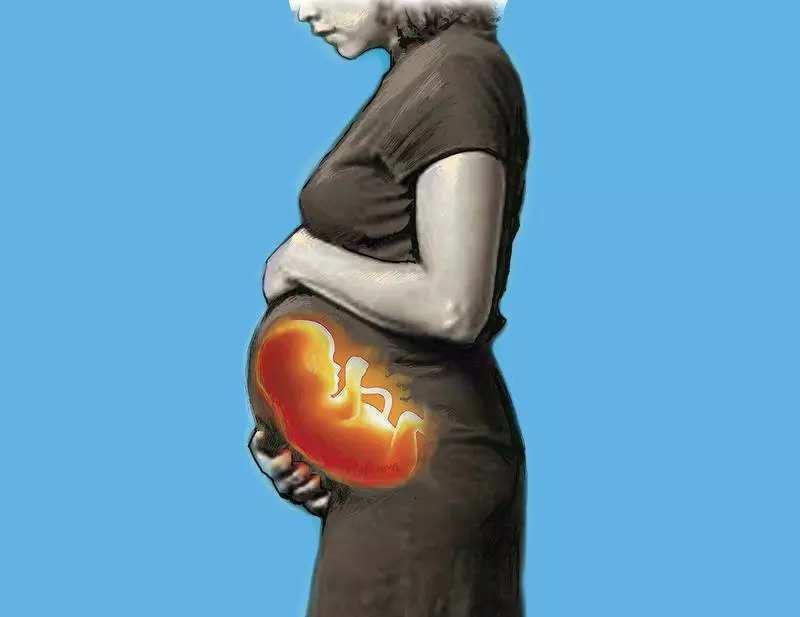Lifestyle triggering gestational diabetes cases, putting moms & newborns at risk, warn docs | Hyderabad News

Hyderabad: With the World Health Day, which falls on Monday, laying emphasis on health of mothers and newborns this year, a look at Telangana reveals a troubling trend of rising gestational diabetes among expectant mothers in state. Approximately one in every six pregnant women is affected by diabetes during pregnancy in the state, which is also the case across the country.
The theme of World Health Day this year is ‘Healthy Beginnings, Hopeful Futures’.
Although it is commonly believed that gestational diabetes resolves after childbirth, it can still pose significant risks to both newborns and mothers, according to Osmania Hospital superintendent Dr Rakesh Sahay, a professor of endocrinology. Some women identified as high-risk may continue to experience diabetes even after pregnancy, he said, adding that women must be vigilant about their lifestyle and dietary choices.
The prevalence of gestational diabetes is particularly common among those with a family history of diabetes. But other pregnant women are also at risk due to factors such as obesity and unhealthy lifestyle. The newborns of mothers with gestational diabetes are also at risk of having low blood sugar levels.
Also, in Telangana, the rate of immediate post-delivery complications stands at 26% as evidenced by the maternal morbidity clinics in the state, which were launched last year for the first time in the country.
These state clinics aim to help woman post-delivery as the current screening and follow-up typically lasts only 42 days, often supported by central government initiatives.
“We recognised that postpartum complications can have long-term effects, and women require ongoing care. This initiative aims to ensure the health of both mother and child beyond 42 days. We conduct screenings at all primary health centres (PHCs) in the state, and those needing advanced treatment are referred to district hospitals, with all medical care provided at no cost,” said health commissioner RV Karnan.
Over 400,000 women were evaluated in these clinics and about 14% found to have experienced complications persisting beyond 42 days. These complications can adversely affect the health of new mothers, thereby influencing their capacity to care for their newborns. The various issues faced by such women included, stress, urinary or anal incontinence. Some faced pelvic organ prolapse (POP), which is the weakening of pelvic floor muscles leading to the bladder, uterus or rectum descending into the vaginal canal, which in turn results to discomfort, urinary dysfunction and pelvic pressure.
The theme of World Health Day this year is ‘Healthy Beginnings, Hopeful Futures’.
Although it is commonly believed that gestational diabetes resolves after childbirth, it can still pose significant risks to both newborns and mothers, according to Osmania Hospital superintendent Dr Rakesh Sahay, a professor of endocrinology. Some women identified as high-risk may continue to experience diabetes even after pregnancy, he said, adding that women must be vigilant about their lifestyle and dietary choices.
The prevalence of gestational diabetes is particularly common among those with a family history of diabetes. But other pregnant women are also at risk due to factors such as obesity and unhealthy lifestyle. The newborns of mothers with gestational diabetes are also at risk of having low blood sugar levels.
Also, in Telangana, the rate of immediate post-delivery complications stands at 26% as evidenced by the maternal morbidity clinics in the state, which were launched last year for the first time in the country.
These state clinics aim to help woman post-delivery as the current screening and follow-up typically lasts only 42 days, often supported by central government initiatives.
“We recognised that postpartum complications can have long-term effects, and women require ongoing care. This initiative aims to ensure the health of both mother and child beyond 42 days. We conduct screenings at all primary health centres (PHCs) in the state, and those needing advanced treatment are referred to district hospitals, with all medical care provided at no cost,” said health commissioner RV Karnan.
Over 400,000 women were evaluated in these clinics and about 14% found to have experienced complications persisting beyond 42 days. These complications can adversely affect the health of new mothers, thereby influencing their capacity to care for their newborns. The various issues faced by such women included, stress, urinary or anal incontinence. Some faced pelvic organ prolapse (POP), which is the weakening of pelvic floor muscles leading to the bladder, uterus or rectum descending into the vaginal canal, which in turn results to discomfort, urinary dysfunction and pelvic pressure.
















